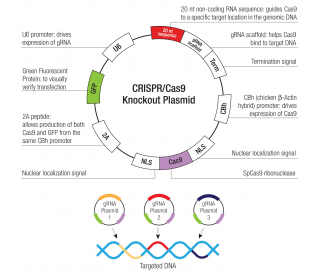Purity
>97%, by SDS-PAGE under reducing conditions and visualized by silver stain
Endotoxin Level
<0.10 EU per 1 μg of the protein by the LAL method.
Activity
Measured by its ability to chemoattract BaF3 mouse pro‑B cells transfected with mouse CCR5. The ED 50 for this effect is 1-5 ng/mL.
Source
E. coli-derived Ala24-Asn92
Accession #
N-terminal Sequence
AnalysisAla24
Predicted Molecular Mass
7.8 kDa
Carrier Free
What does CF mean?
CF stands for Carrier Free (CF). We typically add Bovine Serum Albumin (BSA) as a carrier protein to our recombinant proteins. Adding a carrier protein enhances protein stability, increases shelf-life, and allows the recombinant protein to be stored at a more dilute concentration. The carrier free version does not contain BSA.
What formulation is right for me?
In general, we advise purchasing the recombinant protein with BSA for use in cell or tissue culture, or as an ELISA standard. In contrast, the carrier free protein is recommended for applications, in which the presence of BSA could interfere.
1024-MB/CF |
| 1024-MB |
Formulation Lyophilized from a 0.2 μm filtered solution in Acetonitrile and TFA. | Formulation Lyophilized from a 0.2 μm filtered solution in Acetonitrile and TFA with BSA as a carrier protein. | |
Reconstitution Reconstitute at 100 μg/mL in sterile PBS. | Reconstitution Reconstitute at 25 μg/mL in sterile PBS containing at least 0.1% human or bovine serum albumin. | |
Shipping The product is shipped at ambient temperature. Upon receipt, store it immediately at the temperature recommended below. | Shipping The product is shipped at ambient temperature. Upon receipt, store it immediately at the temperature recommended below. | |
Stability & Storage: Use a manual defrost freezer and avoid repeated freeze-thaw cycles.
| Stability & Storage: Use a manual defrost freezer and avoid repeated freeze-thaw cycles.
|
Background: CCL4/MIP-1 beta
CCL4, also known as macrophage inflammatory protein 1 beta (MIP-1 beta ), is a 12 kDa beta chemokine that is secreted at sites of inflammation by activated leukocytes, lymphocytes, vascular endothelial cells, and pulmonary smooth muscle cells (1, 2). CCL4 attracts a variety of immune cells to sites of microbial infection as well as to other pathologic inflammation such as allergic asthma and ischemic myocardium (3 - 8). A CCL4 deficiency in mice promotes the development of autoantibodies, possibly as a result of compromised regulatory T cell recruitment (6). CCL4 is secreted from activated monocytes as a heterodimer with CCL3/MIP-1 alpha (9). The first two N-terminal amino acids (aa) can be cleaved from human CCL4 by CD26/DPPIV (10, 11). Both the full length and truncated forms exert biological activity through CCR5, and the truncated form additionally interacts with CCR1 and CCR2 (10). In humans, the ability of CCL4 to bind CCR5 inhibits the cellular entry of M-tropic HIV-1 which utilizes CCR5 as a coreceptor (2). Both forms of CCL4 block HIV-1 infection of T cells by inducing the downregulation of CCR5 (10). Mature cotton rat CCL4 shares 75% - 83% aa sequence identity with human, mouse, and rat CCL4.
References:
Rot, A. and U.H. von Andrian (2004) Annu. Rev. Immunol. 22:891.
Menten, P. et al. (2002) Cytokine Growth Factor Rev. 13:455.
Sun, X. et al. (2006) Infec. Immun. 74:5943.
Bisset, L.R. and P. Schmid-Grendelmeier (2005) Curr. Opin. Pulm. Med. 11:35.
Frangogiannis, N.G. (2004) Inflamm. Res. 53:585.
Bystry, R.S. et al. (2001) Nat. Immunol. 2:1126.
Oliveira, S.H.P. et al. (2002) J. Leukoc. Biol. 71:1019.
Schall, T.J. et al. (1993) J. Exp. Med. 177:1821.
Guan, E. et al. (2001) J. Biol. Chem. 276:12404.
Guan, E. et al. (2002) J. Biol. Chem. 277:32348.
Guan, E. et al. (2004) J. Cell. Biochem. 92:53.
Entrez Gene IDs:
6351 (Human); 20303 (Mouse); 116637 (Rat); 448786 (Canine)
Alternate Names:
ACT2; ACT-2; AT744.1; C-C motif chemokine 4; CCL4; chemokine (C-C motif) ligand 4; Exodus-3; G-26 T-lymphocyte-secreted protein; G-26; HC21; LAG1; LAG-1; Lymphocyte activation gene 1 protein; Macrophage inflammatory protein 1-beta; MIP1 beta; MIP-1 beta; MIP1B; MIP1B1; MIP-1-beta; MIP-1-beta(1-69); PAT 744; Protein H400; SCYA2; SCYA4; secreted protein G-26; SIS-gamma; small inducible cytokine A4 (homologous to mouse Mip-1b); Small-inducible cytokine A4; T-cell activation protein 2










